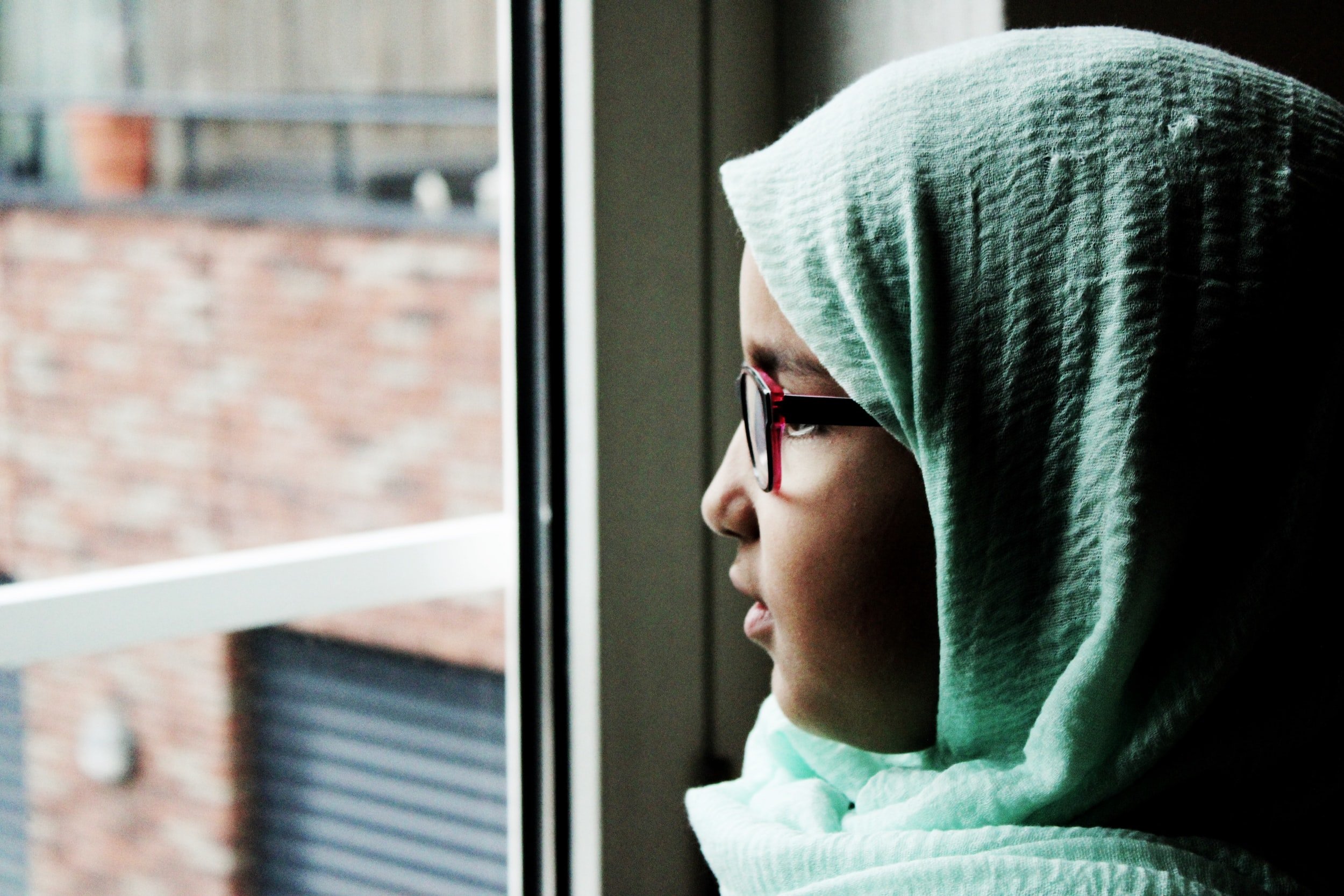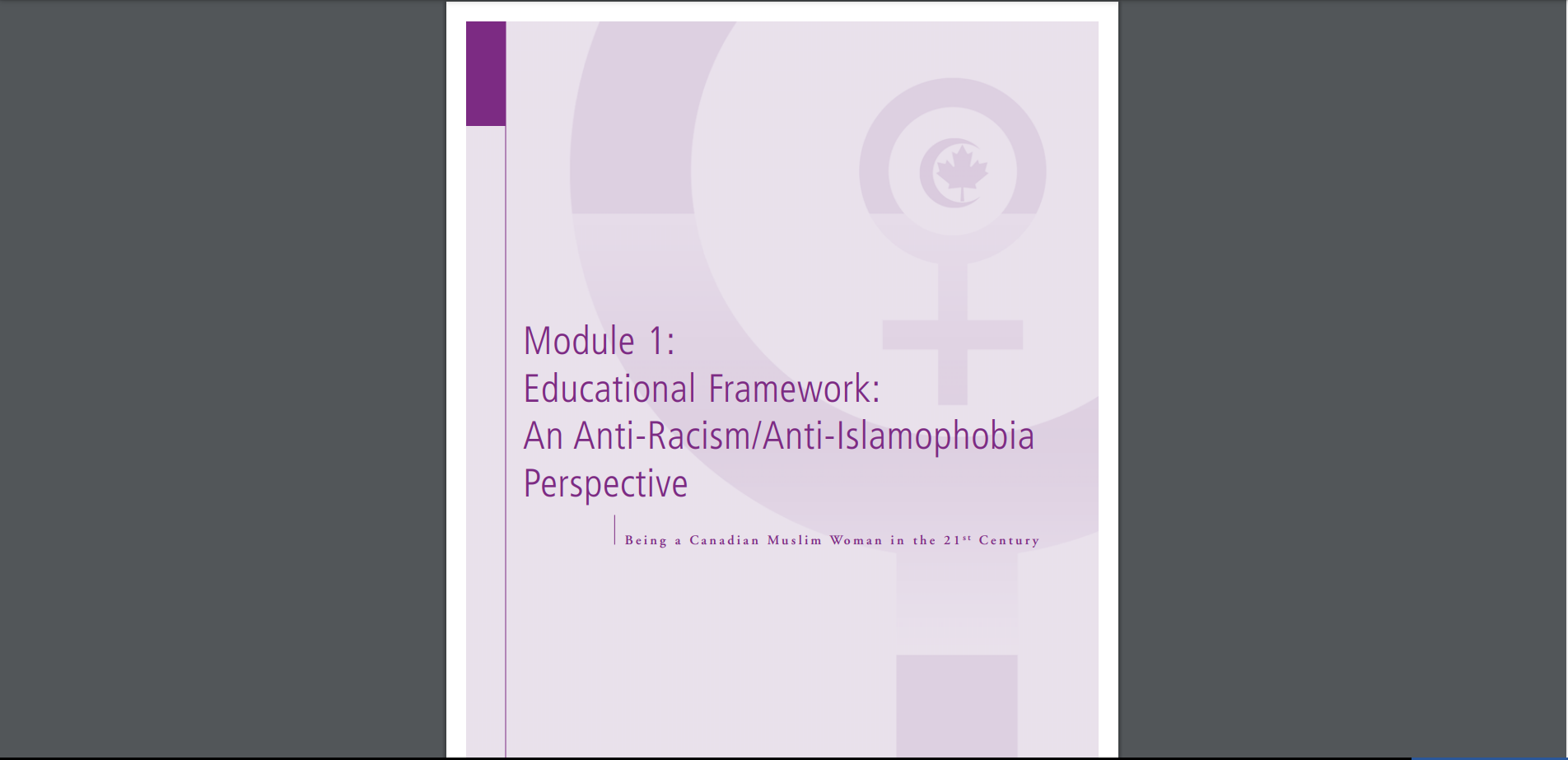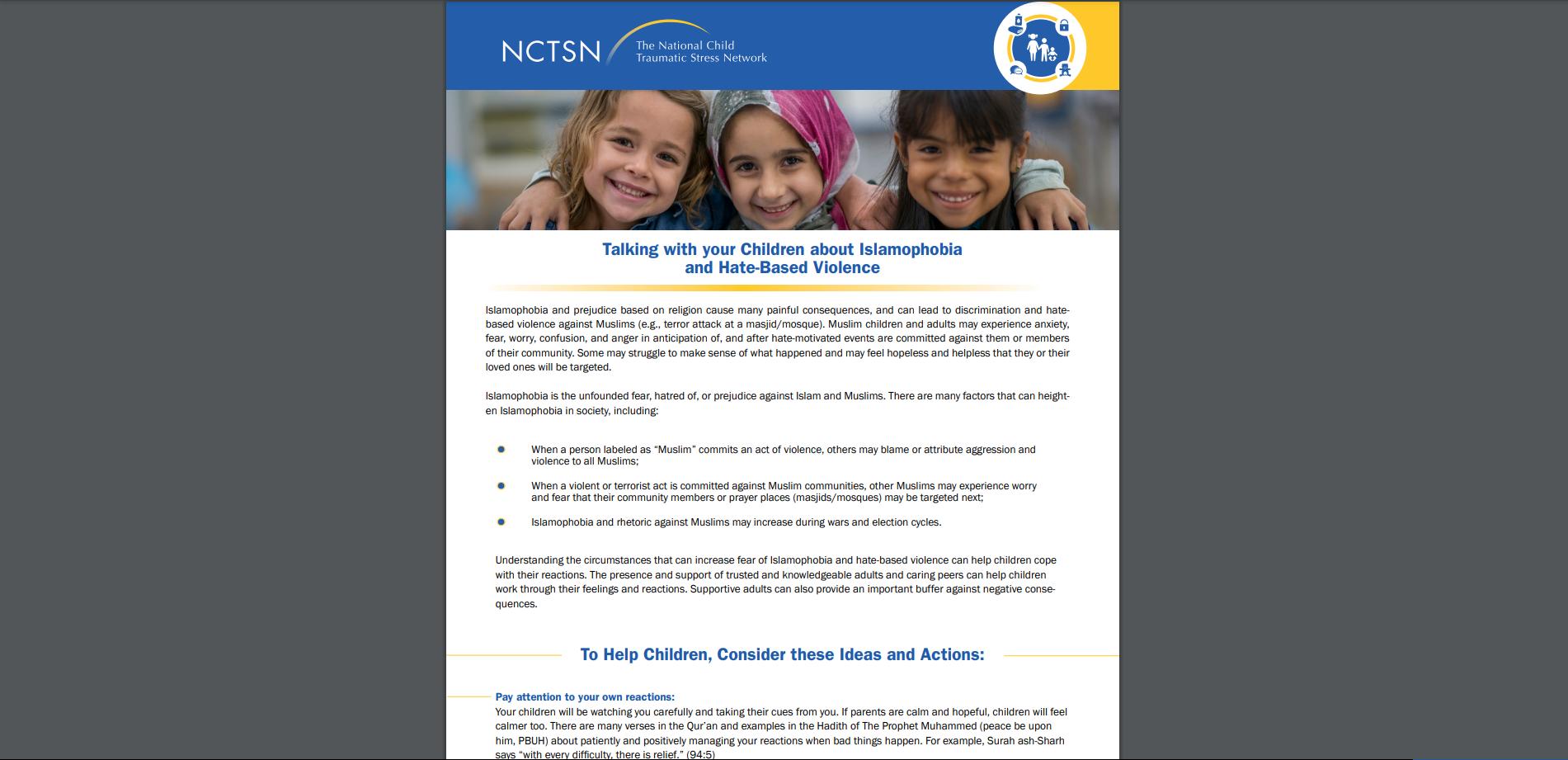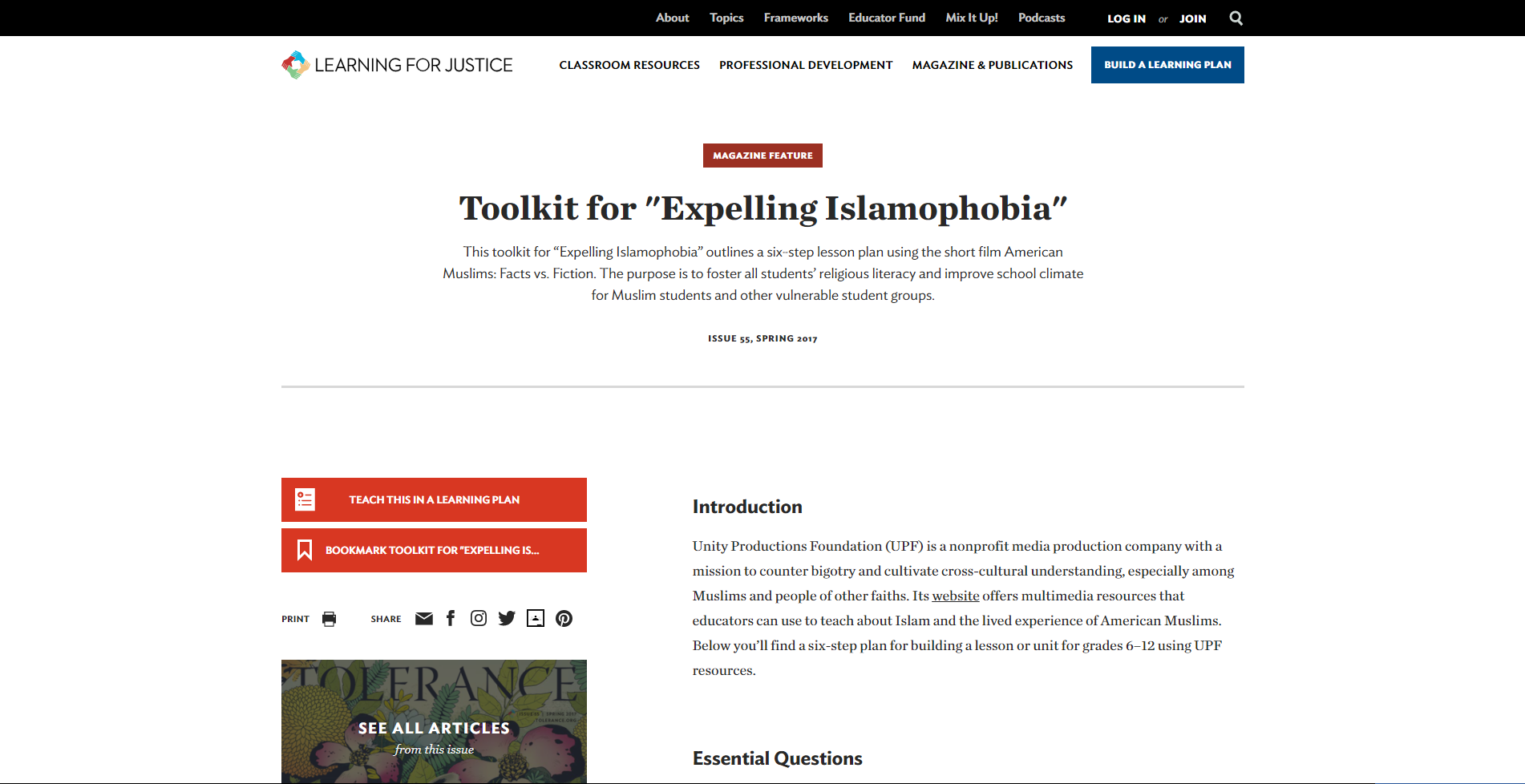
Muslim Anti-Racism Toolkit
Resources
-
Educational Framework: An Anti-Racism/Anti-Islamophobia Perspective
This module applies a critical lens to existing multicultural discussions about diversity and difference. It does so by situating these discussions in an anti-racism/anti-Islamophobia educational framework that provides the pedagogical foundation for the other modules in this tool kit.
-
The Family and Youth Institute
We aim to nurture healthy, thriving children who are joyful, curious and engage with the world with confidence. In order to support this effort and recognizing that racial inequities persist in our society The Family & Youth Institute has published 1), a new book, Uplifting Black Muslim Youth: A Positive Youth Development Approach and 2), this Uplifting Black Muslim Youth Toolkit.
-
Anti-Islamophobia Resources
This resource list contains history, common myths and facts, descriptions of intersections with gender, sexuality, and other forms of racism, helpful databases and statistics, and suggested readings.
-
National Council of Canadian Muslims
This Facebook Page is a leading voice for Muslim civic engagement and the promotion of human rights
-
7 Questions British Muslims Are Tired of Hearing
From BBC Three, this video describes 7 questions British Muslims are tired of hearing.
-
Talking with Children about Islamophobia and Hate-Based Violence
This resource contains age-specific guidelines for talking with children about Islamophobia and hate-based violence, and helpful tips for parents and caregivers.
-
Learning for Justice
This toolkit for “Expelling Islamophobia” outlines a six-step lesson plan using the short film American Muslims: Facts vs. Fiction. The purpose is to foster all students’ religious literacy and improve school climate for Muslim students and other vulnerable student groups.
-
Teaching About Islamophobia
This page, compiled by Educators 4 Social Change, contains a list of many resources available for teachers to use when teaching their class about Islamophobia.
-
Rivers of Hope
This Toolkit is based on Sidrah Ahmad’s Master’s Research Project at the Ontario Institute for Studies in Education (OISE) at the University of Toronto. For her research project, she interviewed 21 Muslim women survivors of Islamophobic violence. You’ll see quotes from these survivors throughout the Toolkit, but their names of have been changed to protect their identities. You’ll also see poetry on Islamophobic violence written by Muslim women throughout. This Toolkit is here to provide inspiration, resources, and information to Muslim women facing Islamophobic violence and people who want to support them.
-
Educators Guide to Islamophobia
The ‘Islamophobia is’ video series aims to foster an understanding of and commitment to addressing, Islamophobia in its breadth and depth, among youth and non-youth alike.
This guide is designed to enhance the educational and social impact of the video series among students in grades 6-12, while also contributing to students’ broader learning outcomes as outlined in the Ontario curriculum.
-
Manitoba Islamic Association
This page from the Manitoba Islamic Association contains resources for Mental Health and Wellness
-
Grief and Mental Health Supports
This document contains a list of Canada-wide resources for grief and mental health supports.
-

Tesselate Institute
The Tessellate Institute is an independent, non-profit research institute that explores and documents the lived experiences of Muslims in Canada. The Tessellate Institute engages in a range of activities, whether it is an oral history archive or documentary film, a curriculum pack for classrooms or workshops for a target group.
-

Media Connection: Mental Health Experiences of Muslim Youth
This news article describes how an Ontario-based Muslim youth help line sees 'unprecedented' rise in callers from Quebec.
-

Interreligious Dialogue
Interreligious dialogue serves to transform perspectives and support viewing religious and cultural differences not as obstacles but as starting points of a process that aims to find sustainable solutions for the common good.
This guide aims to illuminate the uses, methods, and benefits of interreligious dialogue in a general and accessible way.
-

The Yaqeen Institute for Islamic Research
Constant negative portrayals of Islam have put Muslims in a defensive position in which they constantly have to justify their convictions, while fighting off the natural doubts and insecurities that arise in such a climate.
The institute aims to be the trusted source regarding these convictions by generating well researched Islamic content that is then carefully assembled into curricula that can be used by various educators and community leaders to help anchor young Muslims in their faith, and produce thoughtful societal contribution.
-

Duke Islamic Studies Center
This website showcases a vibrant, diverse community of scholars and students engaged in interdisciplinary teaching, interactive learning, and cutting-edge research about Islam and Muslims.
One of the leading institutions in North America for the study of Islam and Muslims, DISC educates today's students to become tomorrow's leaders by equipping them with knowledge about the breadth and diversity of Islamic cultures, cross-cultural experiences, and language skills. The center takes a comparative, cross cultural approach to Islamic studies to encourage creative solutions to the economic, political and social challenges involving Muslims
-

My Voice is Louder than Hate
My Voice is Louder Than Hate is a multimedia lesson resource designed to empower students in Grades 9 to 12 to push back against hate and prejudice in their online communities.












